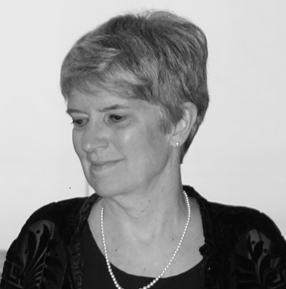Evolution
How, Alan Turing thought, does the soft-walled,
jellied, symmetrical cell
become the asymmetrical horse? It was just before dusk,
the sun’s last shafts doubling the fence posts,
all the dark mares on their dark shadows. It was just
after Schrodinger’s What is Life,
not long before Watson, Franklin, Crick, not long before
supper. How does a chemical soup,
he asked, give rise to a biological pattern? And how
does a pattern shift, an outer ear
gradually slough its fur, or a shorebird’s stubby beak
sharpen toward the trout?
He was halfway between the War’s last enigmas
and the cyanide apple—two bites—
that would kill him. Halfway along the taut wires
that hummed between crime
and pardon, indecency and privacy. How do solutions,
chemical, personal, stable, unstable,
harden into shapes? And how do shapes break?
What slips a micro-fissure
across a lightless cell, until time and matter
double their easy bickering? God?
Chance? A chemical shudder? He was happy and not,
tired and not, humming a bit
with the fence wires. How does a germ split to a self?
And what is a—We are not our acts
and remembrances, Schrodinger wrote. Should something—
God, chance, a chemical shudder?—
sever us from all we have been, still it would not kill us.
It was just before dusk, his segment
of earth slowly ticking toward night. Like time, he thought,
we are almost erased by rotation,
as the dark, symmetrical planet lifts its asymmetrical cargo
up to the sunset: horses, ryegrass—
In no case, then, is there a loss of personal existence to
deplore—
marten, whitethroat, blackbird,
lark—nor will there ever be.
Copyright © 2016 Linda Bierds. Used with permission of the author.
“Three years ago, while living in London, I saw an exhibition at the Science Museum on Alan Turing’s life—his work as a decoder in World War II, his persecution as a homosexual, his death by cyanide at forty-four. Although the focus of Turing’s work was not evolution, he did ask how the symmetrical cell could become the asymmetrical being. When I found myself asking similar questions about Turing’s personal evolution, my poem took shape.”
—Linda Bierds

